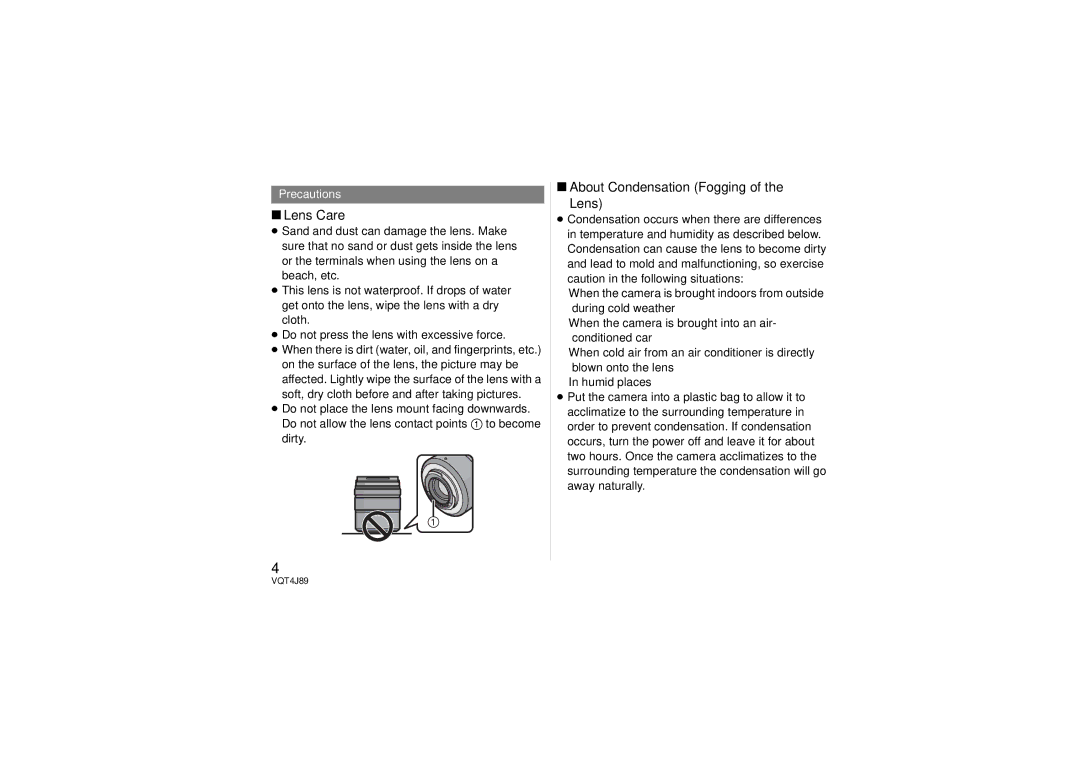
Precautions
∫Lens Care
≥Sand and dust can damage the lens. Make sure that no sand or dust gets inside the lens or the terminals when using the lens on a beach, etc.
≥This lens is not waterproof. If drops of water get onto the lens, wipe the lens with a dry cloth.
≥Do not press the lens with excessive force.
≥When there is dirt (water, oil, and fingerprints, etc.) on the surface of the lens, the picture may be affected. Lightly wipe the surface of the lens with a soft, dry cloth before and after taking pictures.
≥Do not place the lens mount facing downwards. Do not allow the lens contact points 1 to become dirty.
4
∫About Condensation (Fogging of the
Lens)
≥Condensation occurs when there are differences in temperature and humidity as described below. Condensation can cause the lens to become dirty and lead to mold and malfunctioning, so exercise caution in the following situations:
–When the camera is brought indoors from outside during cold weather
–When the camera is brought into an air- conditioned car
–When cold air from an air conditioner is directly blown onto the lens
–In humid places
≥Put the camera into a plastic bag to allow it to acclimatize to the surrounding temperature in order to prevent condensation. If condensation occurs, turn the power off and leave it for about two hours. Once the camera acclimatizes to the surrounding temperature the condensation will go away naturally.
VQT4J89
